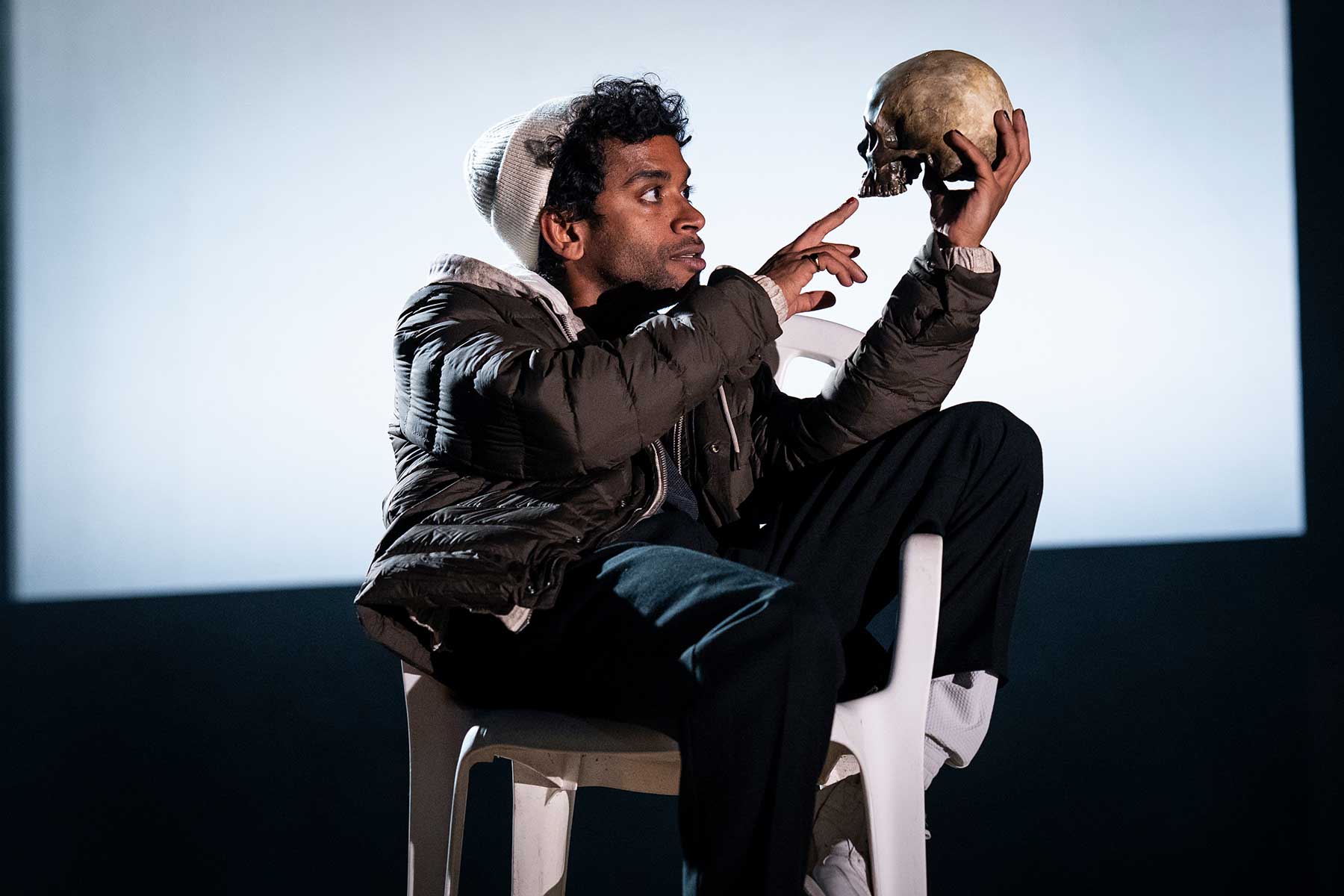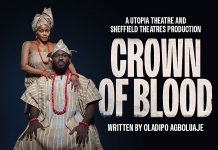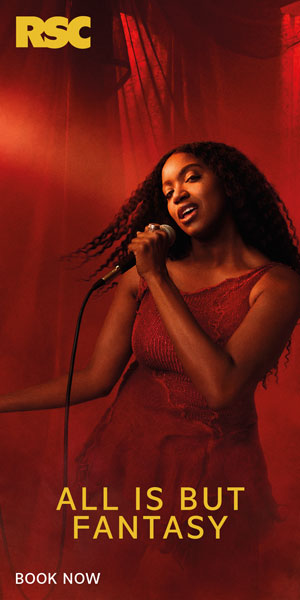
Robert Hastie‘s new Hamlet, the seventh at the National Theatre, is as lavish as it is uneasy. It opens with grandeur and ends in collapse, a meditation on grief, beauty, and the lies we tell to keep up appearances. Fitting, in the week we say goodbye to RSC alumna, Dame Patricia Routledge.
Let’s start with the undeniable: Francesca Mills is breathtaking. Her Ophelia is layered yet grounded, full of light yet sharper than the role usually allows. To my knowledge, she is the first Ophelia with dwarfism in a major West End production. Too often actors, especially women, with disabilities are desexualised; rarely portrayed as desirable and too often objectified for fetish or caricature.
The wig, hair and makeup department knew this and said, ‘Hold my goblet.’ The staging celebrates not just Mills’s beautiful face but her enviable, hourglass form – an assertion or more accurately – an admission, in a context that so often denies the desirability of women with disabilities. Costume designer Ti Green‘s choices lean into that: skintight athleisure, silver dresses that slink over her curves. When Polonius (Geoffrey Streatfeild) dies at Hamlet’s hands, she unravels completely. What remains is grief that consumes her, leaving only bursts of song, flashes of steel, and quiet, sad rage. She brought me to tears; that doesn’t happen often.
Hamlet is played by Sri Lankan actor Hiran Abeysekera. In the opening wedding scene (400-year-old spoiler alert), Hamlet’s uncle marries his mother Gertrude (Ayesha Dharker) just two months after the king’s death. Ben Stones‘s set design announces that aesthetics matter: white-panelled walls, classical allusions, gilt chairs, and finery that would be fancy in real life. The court performs joy, but Hamlet cannot. He is a solemn creature, hovering at the frame, refusing to participate in the forgery. He swallows each bid for his affection with visible gulps and twitching hands, stifling rage that cannot reconcile the ‘wicked speed’ of this marriage. He is not wrong. This is messiness on par with The Real Housewives: scandal sanitised by the respectability conferred on high society at its lowest conduct.
When Claudius (Alistair Petrie) urges him to lighten up and he replies, ‘Not so, my lord; I am too much i’ the sun,’ he does so with a wink. The double meaning remains: a loyal son, weary of his uncle’s scrutiny, but as the darkest man on stage, the line strikes differently. Here he’s also resisting a demand to perform grief in a way palatable to the court, and perhaps not entirely legible to the National’s primary audience either.
There is a certain detachment in Abeysekera‘s performance. He delivers several of Hamlet’s most resonant soliloquies like a running jump that skims just above the landing we expect. Frankly, ‘to be or not to be’ just wasn’t. The Bard’s couplets are so embedded in the rhythm of our chatter that there’s recurring reward in seeing them realised under a spotlight, on a real stage. Abeysekera almost robs us of that, but I don’t think it’s by accident. His work returns us to a time when those lines offered confusion, even caution. It creates the authentic uneasiness of grief, eerily present but no longer ours; the words themselves become ghosts.
As it is for many others, my grief is a capricious companion: perceptible to its peers, perhaps; a shadow self ever ready to surface. But Abeysekera‘s Hamlet is not there yet. His grief is still writhing in his skin, a parasite not yet accepted by its host, and it shows. His energy lends itself intuitively to this condition; he moves sharply, in rhythm but out of time, choreographed chaos held steady by a player fearless in his physicality.
The beauty here is as elusive as it is deceptive. I was rapt, but the beats never burrowed into my brain the way great theatre does. I found it resonant, even at times remarkable, but it lacked the conviction to fix itself there. What holds, though, is its interrogation of beauty itself. And here, Hastie finds his footing. This staging is not concerned with beauty as aesthetic, but explores its function in maintaining the illusion of order and the levers of power. We know what it means to be told that what we witness isn’t real, that our eyes deceive us, that the rot we smell is perfume.
Hamlet and Ophelia know it too. They are the only dissidents, responding in opposite but aligned ways to lies that corrode their world. Their distinct madnesses are rational reactions to gaslighting at scale; not stories of failed perseverance but of minds held hostage by a machinery of deception. When this Hamlet sits at the edge of the stage, meets our eyes and speaks in hushed tones, he is not serenading an audience. He is calling us in, to madness, to clarity, to reality, to rage against the machine. We should all be mad.
NEED TO KNOW: Hamlet plays at the National Theatre until 22 Nov 2025































